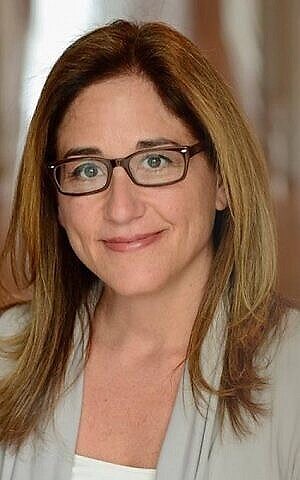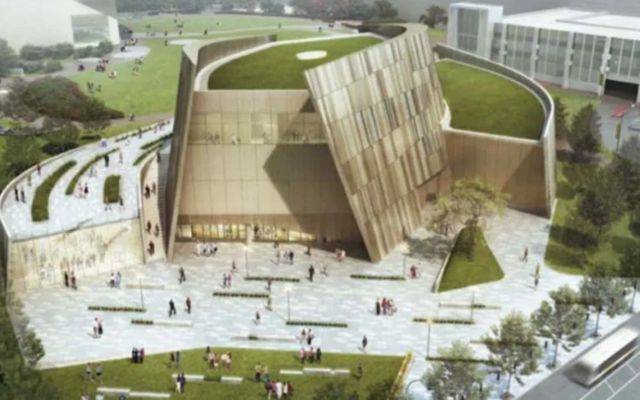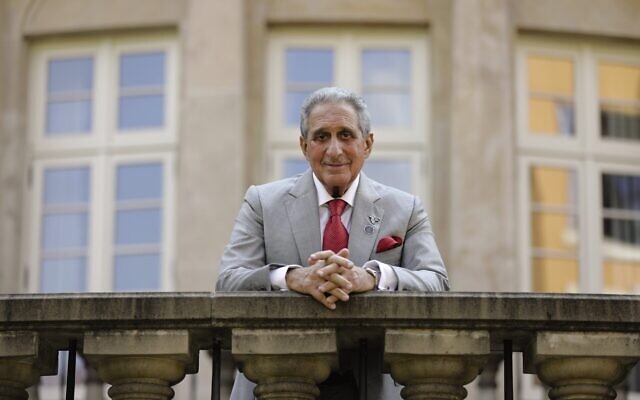Blank Foundation’s $17 Million ‘Tzedakah’ to Civil Rights Center
The gift, spread over five years, will fund a new wing of the National Center for Civil and Human Rights in Atlanta.
The Arthur M. Blank Family Foundation has announced a $17 million gift to expand the National Center for Civil and Human Rights in Atlanta. The gift that Blank made through his family foundation will be spread over five years and fund a new wing of the center, which is located in Centennial Olympic Park next to the Georgia Aquarium. The aquarium was built by Bernie Marcus, who founded The Home Depot with Blank in 1978.
In announcing the donation, which will place the new building side-by-side with the Aquarium, Blank acknowledged the Jewish roots of their philanthropic efforts.
“The notion of giving back, the notion of tzedakah, if you will, making a difference in the world, you know, giving back in ways that we can’t say. We’ve been blessed, myself and many, many others. And so, these are all opportunities for us to, to say thank you, to give back to society.”

Jill Savitt, CEO of the center, came to the Atlanta attraction early in 2019 from the United State Holocaust Memorial Museum. She told the AJT soon after she arrived that she owed a debt to her Jewish heritage and how it shaped her concerns about civil liberties.
“Human rights came into being as a result of the atrocities of World War II. The collective guilt of the international community made it possible for mainly Jewish lawyers … to say we need certain laws and standards. We’re not going to let this happen again. It is an outrage to the conscience of mankind what happened to the Jews in the Holocaust,” she said in the AJT’s April 2019 story.
Savitt said that the recent gift will help transform the museum, which is now largely an attraction for visitors, into a civil and human rights facility with a much broader mission.
“Our goal over the next five years is to transform to not just an attraction, but full rights institution that does a lot more. And our goal really overall is to help people tap their own power to change the world around them. That’s what we believe our center can do because of the unbelievable stories that we tell.”
The donation by the Blank foundation is part of a large capital campaign that Savitt said has collected $25 million, about halfway toward a goal of $50 million, which will make it possible to expand the building with an east wing. The expansion is expected to add 50 percent to the building meeting and exhibit space and create a complex with over 50,000 square feet.
The center has seen a rapid expansion of its programs over the last year. It has started a program to train the Los Angeles police department and has a number of other projects pending with major police forces around the country, including a program that Savitt said would start March 1 to train every officer in the Atlanta department in human rights.

Over the years, the Blank family foundation has given over $20 million to the center, which Blank said he believes will help to bring Americans together. He was one of the original donors for the construction of the building in 2013.
Last year, Blank launched his book about the importance of giving back to others, “Good Company,” with an announcement that all the proceeds from the book would go to the National Center.
He told the AJT at that time that the book was an urgent plea to regain a sense of dignity and community that has partially disappeared from American society in recent years.
“We tend to live much more in silos, isolation, both individually as well as in groups. And I think that’s a step backwards. A step forward, which is kind of the essence in this book, is that, when we live as communities, we have a much higher purpose that will give us the spiritual returns that are important to us leading a full and happy life.”




comments